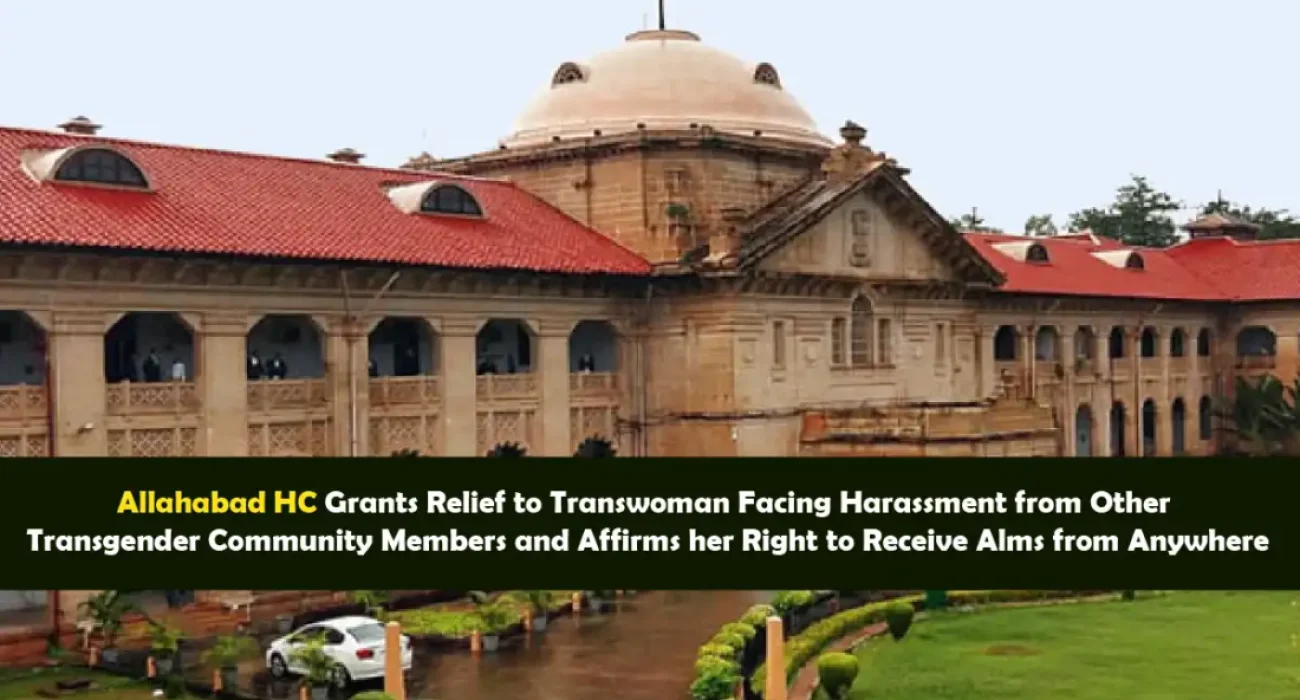

Table of Contents
ToggleRecently, the Allahabad High Court heard a writ petition filed by a trans woman from Saharanpur, Uttar Pradesh, who alleged harassment by other members of the transgender community. The petitioner claimed that certain individuals (respondents 5 to 10) from the same community had unlawfully claimed a specific area of Saharanpur as their “territory.” They had been preventing her from visiting households during events like childbirth or marriage, which traditionally are opportunities for transgender persons to receive alms—a crucial means of sustenance for her. The petitioner further asserted that these respondents had assaulted her in the past and regularly threatened her, demanding that she follow their dictates. This harassment, she argued, was not only depriving her of her livelihood but also posed a serious threat to her life and property.
The petitioner described herself as a transgender person who, despite facing systemic marginalization, sought to live with dignity. She contended that the actions of Respondents No. 5 to 10 amounted to an illegal restraint on her fundamental rights, particularly her rights to life and liberty with dignity, as enshrined under the Indian Constitution. The petitioner emphasized that the respondents’ actions were depriving her of the basic means of survival and that the threats and assaults constituted a violation of her personal security. In her plea, she sought the court’s intervention to protect her from further harassment and to ensure that she could enjoy her rights without unlawful interference.
The Respondents in this case, members of the transgender community who had allegedly claimed the Saharanpur area as their territory, did not appear to present a strong defence at this stage. The State’s role, as represented by the District Magistrate of Saharanpur, was to ensure law and order and to protect the petitioner’s rights. The State was expected to provide a safe environment where all citizens, including transgender individuals, could live without fear of violence or coercion.
The Division Bench of Justices Saumitra Dayal Singh and Donadi Ramesh observed that while the petitioner had a remedy under the Transgender Persons (Protection of Rights) Act, 2019, specifically under Section 17, to approach the National Council for Transgender Persons, her fundamental rights as a citizen could not be overlooked. The Court acknowledged that every citizen, including transgender persons, is entitled to protection of life and liberty with dignity. The bench made it clear that the State has a responsibility to ensure that the petitioner is not subjected to any illegal restraint or harassment that would infringe upon these rights.
Although the Court did not delve into the factual disputes at this preliminary stage, it recognized the seriousness of the petitioner’s claims and indicated that a prima facie case had been made for the protection of her fundamental rights.
The Allahabad High Court disposed of the writ petition by directing the petitioner to file a detailed application before the District Magistrate of Saharanpur, supported by an affidavit and relevant documents, within two weeks. The Court instructed the District Magistrate to consider the application on its merits and, if necessary, to assign an officer to ensure that Respondents No. 5 to 10 do not illegally restrain the petitioner from exercising her fundamental rights. The Court further ordered those necessary arrangements be made to protect the petitioner’s life, liberty, and property from any undue harm by the Respondents.
IAW resources
Browse our help directory